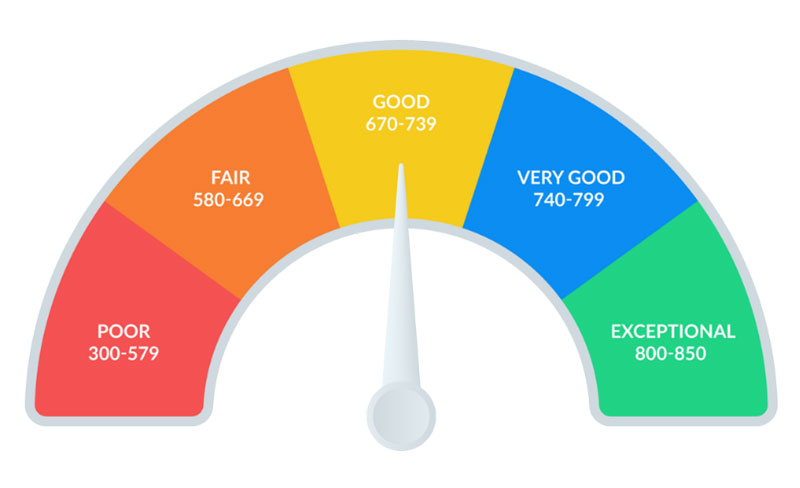The three leading credit reporting agencies worked together to create a single credit score called VantageScore. It helps to assess a borrower's propensity to make loan payments on time. Creditors, landowners, and financial organizations utilize it to determine whether or not a potential customer is a reasonable risk.
VantageScore was developed in 2006 by Transunion, Equifax, and Experian as an alternative to the more popular FICO credit score. Unlike the FICO credit score, VantageScore's original scale did not range from 300 to 850. However, the latest changes have brought it in line with FICO's.
Lenders have decided to take notice of VantageScore, and the service is available to customers at no cost.

The most up-to-date credit score model is known as VantageScore, takes into account the following five variables in equal measure:
It makes use of modern AI and ML algorithms, both of which contribute to what it says is an increased level of accuracy compared to a FICO score. However, many other things don't matter, such as someone's "ethnicity, race, gender, citizenship, sexuality, relationship status, age, income, profession, company, job history, location, or net equity."
The original versions used a rating scale between 501 - 990, including a grading system ranging between A to F and various weighting of elements. When VantageScore 3 was released, it adopted the same 300-850-point scale as FICO and needs to be done away with the letters grading system. The FICO credit score continues to be the most widely used, utilized by around 90% of all creditors.
Nonetheless, according to the latest research performed by the consultancy firm Oliver Wyman, the utilization of VantageScore is currently on the rise, expanding by around twenty percent per year since June 2015. According to the most current research, which focused on the beginning period, a total of over 2,500 individuals generated approximately 12.3 billion-plus VantageScores. VantageScore's most active users are credit card companies backed by financial institutions such as banks.

The elements with the highest weight in terms of importance when calculating FICO credit scores are very similar to those with the heaviest weight when calculating VantageScores. Paying timely bills is among the most crucial aspects customers can undertake to improve their credit ratings, which applies to both categories.
When describing credit variables for VantageScore, it refers to all the factors that can play a vital role in " influencing " an individual's scoring history. Following is a breakdown of the variables according to the VantageScore 3.0 model:
You may obtain a comprehensive VantageScore from online VantageScore calculation apps. In addition to calculating this score manually, such websites focus on your budgeting. The scores provided by Such websites are updated once every week and come with free credit score summaries provided by TransUnion.
Moreover, the scoring method uses modeling approaches such as historical data trends of credit scores, ML, and NCAP modification. The following demographic metrics are included in the fundamental calculation of VantageScore 3.0 credit reports:
In determining a customer's VantageScore, it plays a significant role. According to some sources, it's responsible for 40% of the total score, making it nearly twice as important as the next most crucial factor. Because of this, keeping a high VantageScore requires regular, on-time purchases.
The age and kind of a consumer's credit are crucial factors in a VantageScore. A customer's length of credit history is taken into account, as well as the variety of credit types they use (21% of the total score). This is why canceling your earlier memberships is not a good idea, even though you utilize those accounts more often.
The debt-to-credit percentage, or credit usage rate, is the current outstanding balance of a consumer's credit cards divided by the overall limits of credit score. This factor accounts for 20% of a customer's final VantageScore. Your available credit obligations should be at most 30 percent of your available credit to achieve the best possible results.
These amounts are worth 11% of a user's VantageScore, which is considered moderately important. If you want to excel in this area, you must minimize the amount you owe on your credit cards. A VantageScore's 5 percent weight on loan applicants made within the past month is lower than the weights given to other criteria.
Your credit rating may drop due to the rigorous checks performed when you request brand-new credit and debit cards or mortgages. If you want to lessen the impact of these impacts, don't apply for any new credit. This is especially important if you plan to obtain a mortgage.
Finally, a customer's total credit limit is deemed less significant than other factors when calculating their VantageScore. Nonetheless, this component still contributes 3% to the total. If your account balance is low, you should seek an increase or apply for a secured debt management plan.